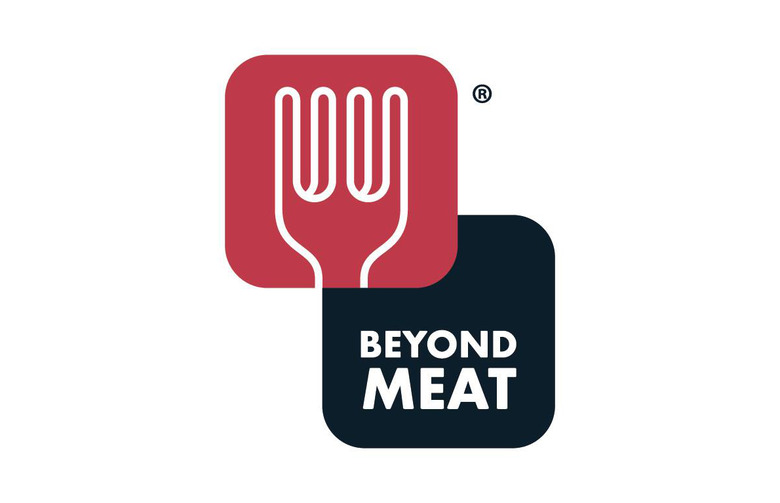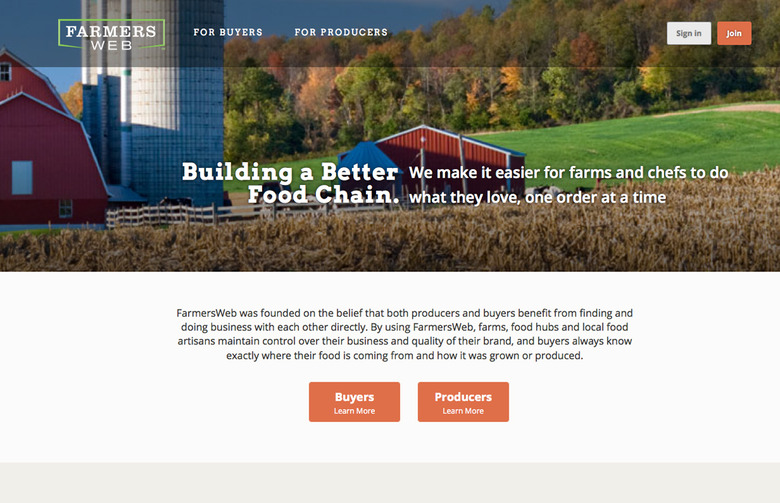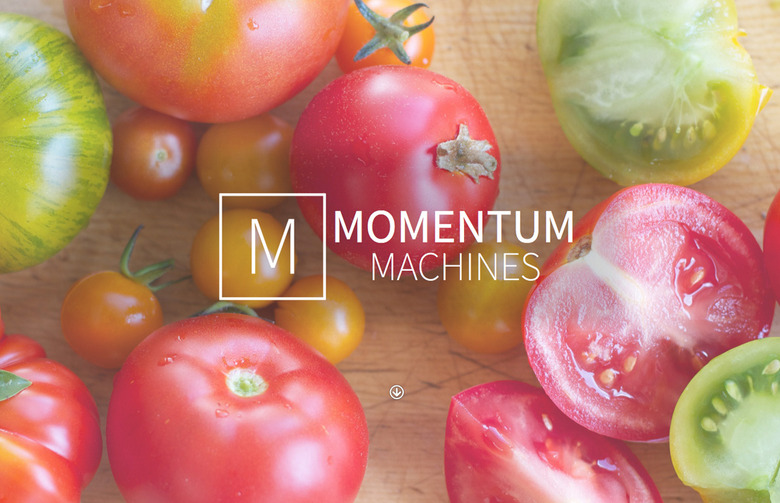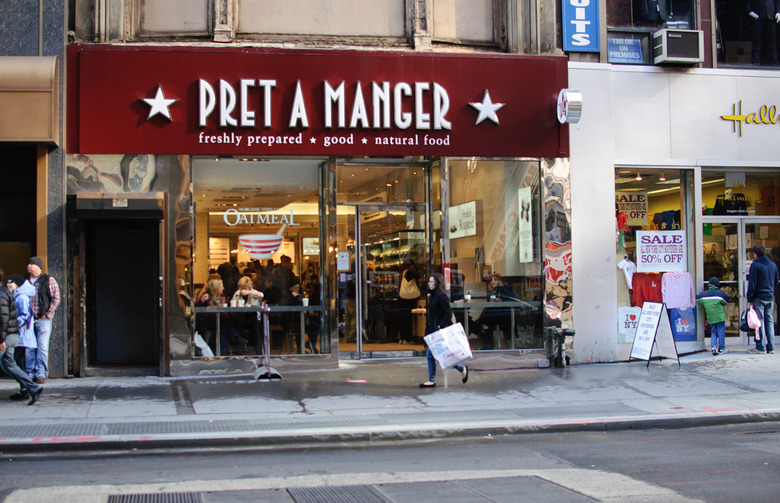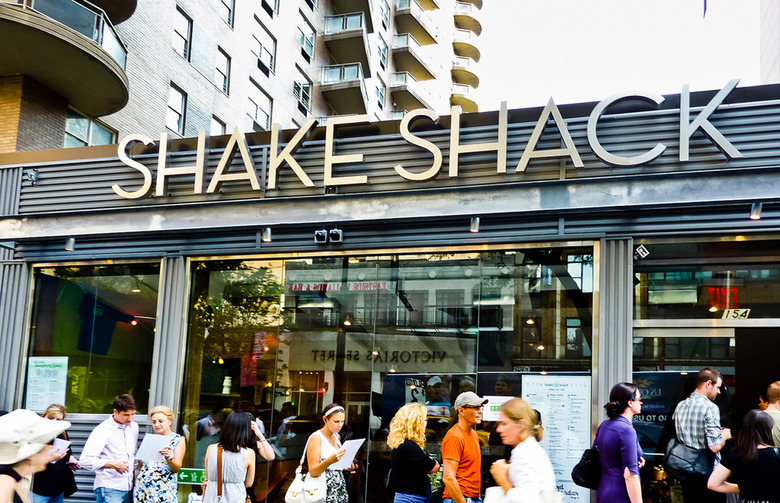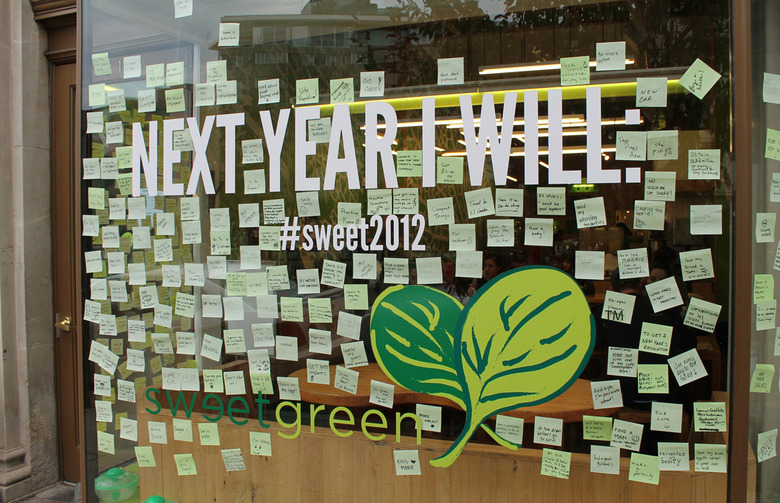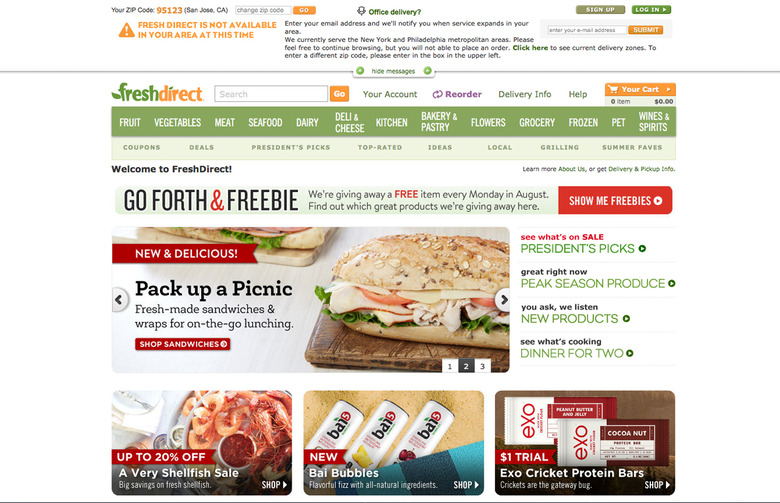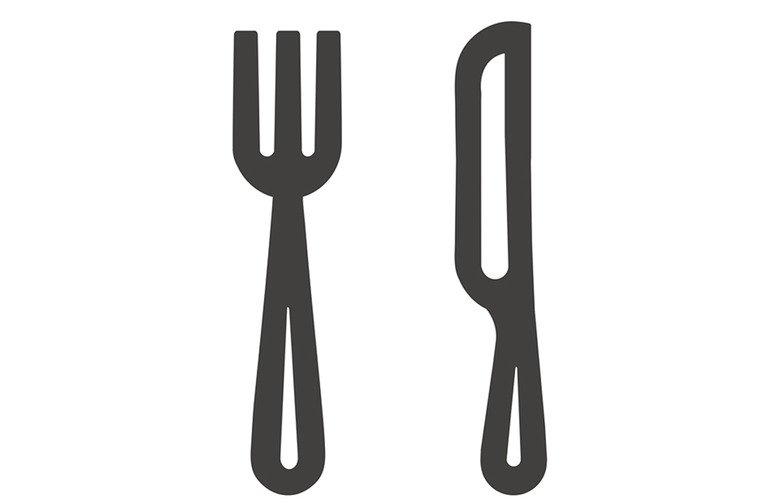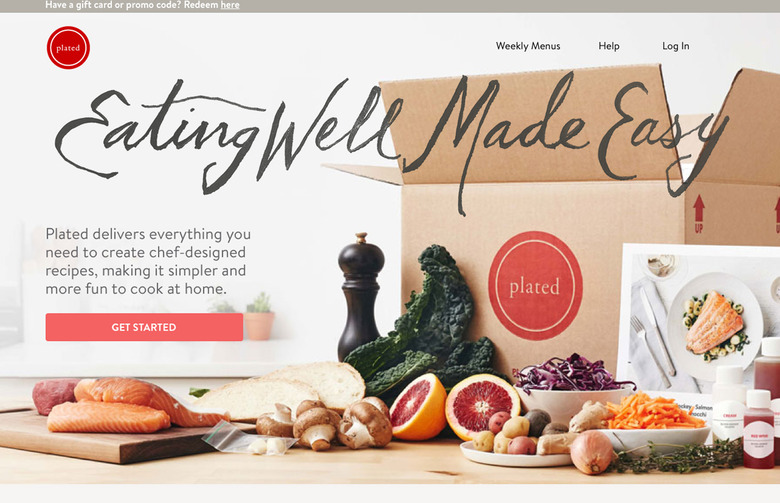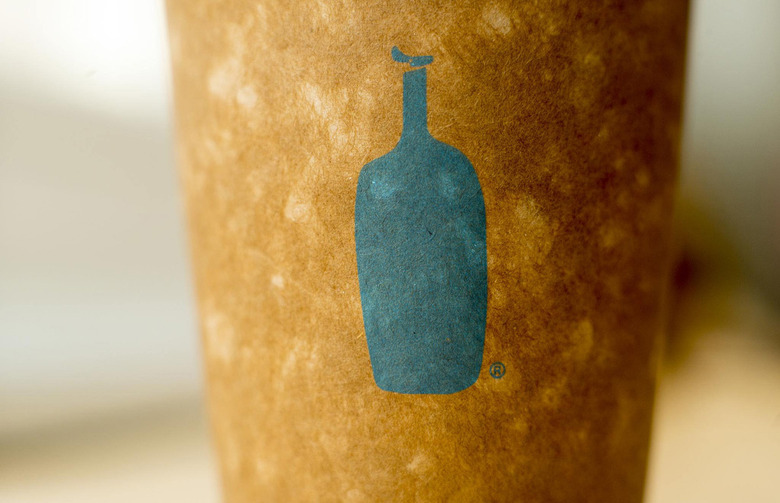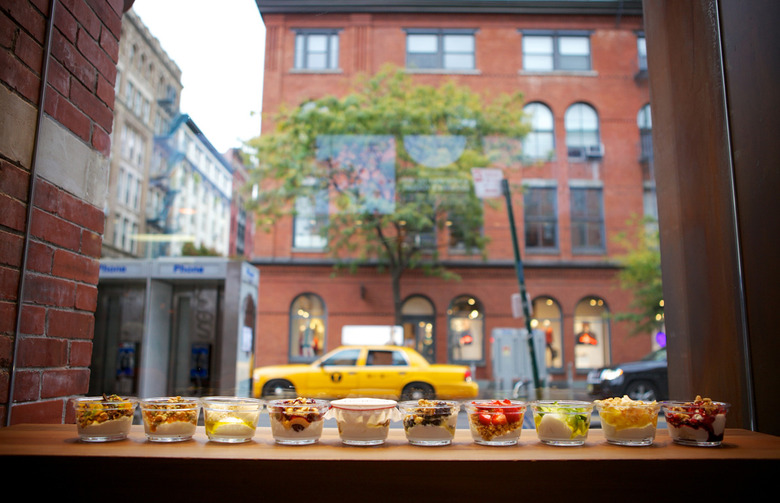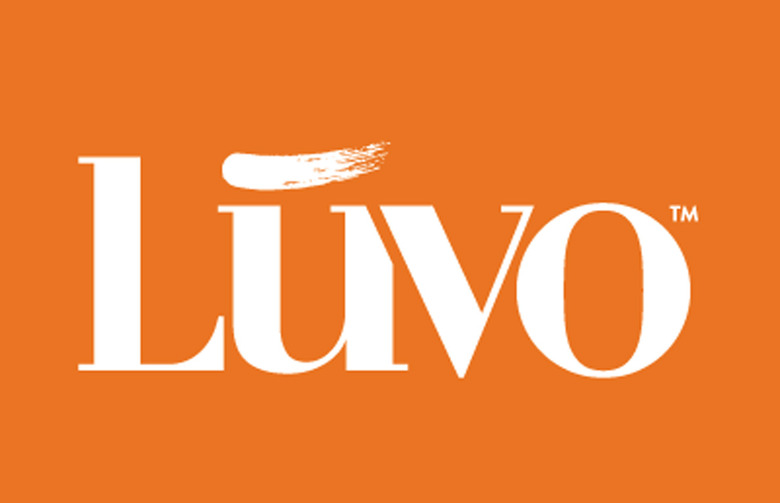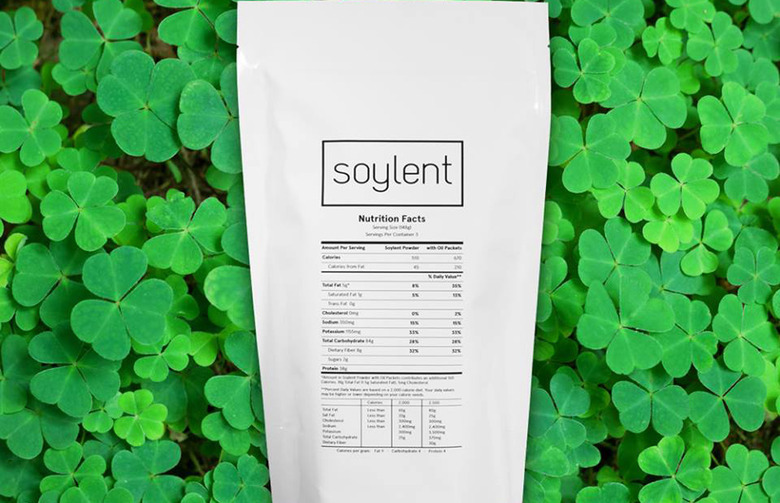The 16 Most Innovative Food Companies
Every company, in one way or another, wants to be innovative. Doing the same thing as everyone else isn't a recipe for success, after all. Some companies, however, are far more innovative than others, and these 16 are the most innovative in the food and drink world.
Science and Technology: Beyond Meat
For vegetarians, finding a suitable meat substitute that actually looks, tastes, and feels like meat has always been a futile effort. Until now. Beyond Meat hails its creation as "meat from plants," and they really mean it. Instead of just putting vegetable protein in a mold and calling it a day (or a burger), they went looking for the same building blocks that meat contains — amino acids, lipids, fats, oils, water, and protein — and found them all in plant-based sources. The resulting product is uncannily meat-like, but Beyond Meat's goal goes far beyond that: they want to improve human health, positively impact climate change, address global resource restraints, and advance animal welfare.
Science and Technology: Farmers Web
The core mission of Farmers Web is to connect consumers to the farmers and artisans from whom they get their food. The easy-to-navigate website brings the farm-to-table movement full-circle by allowing chefs, purchasing managers, and other food buyers to find farmers selling fresh dairy, produce, and meat within 250 miles of them; the food is picked and shipped fresh to order. It's free for the buyers to use, only costs farmers a small fee, and completely cuts out the middleman.
Science and Technology: Momentum Machines
Would you eat fast food that's been prepared entirely by a robot? Enter Momentum Machines, a San Francisco-based robotics company that's created a robot that can produce salads, sandwiches, burgers, and many other foods without any human intervention. Their robot can shape ground meat into a perfect patty, grill it to order, toast a bun, slice fresh vegetables, and assemble the burger... 360 times per hour, according to Salon. The company claims that the robot can pay for itself within a year, and will completely eliminate labor costs and reduce kitchen space. Whether replacing workers with robots in the fast food industry is a good idea or not is certainly a conversation worth having, but you can't deny that it's a revolutionary concept.
Science and Technology: Monsanto
Love it or hate it, you can't deny that Monsanto's effect on the agriculture industry has been massive. In a nutshell, they develop seeds for major crops and sell them to farmers, but there's a whole lot of science involved as well: Through selective breeding and genetic modification, they amplify crops' most desirable traits while making them more resistant to pests and environmental factors, and develop technology to make sure farmers use the exact amount of seed, water, and fertilizer that's needed in order to prevent waste. They're one of the most controversial companies around because GMOs are such a hot-button issue (they've also been in the news for taking plenty of farmers to court for various reasons, and vice versa), but without them, the agricultural industry would be a much different place.
Redefining Fast Food: Chipotle
While eating a burrito in San Francisco in 1991, Chipotle founder Steve Ells had an idea that would change American fast food forever: to produce food fast and inexpensively without compromising on flavor and quality. Chipotle essentially invented the "fast-casual" restaurant: a more upscale environment, higher-quality and slightly more expensive food, and the familiar, convenient, and limited format of fast food. The food is freshly prepared, the ingredients are high quality (and when they don't meet the company's standards they aren't sold, even if it results in a financial hit), and employees are well paid. Chipotle came along and rocked the tried-and-true fast food formula to its very foundations.
Redefining Fast Food: Pret a Manger
Pret a Manger was founded in London 30 years ago, but you wouldn't know it based on a visit to one of its many locations in the U.K., France, the United States, and Shanghai; this company is constantly innovating. In the past year alone, the grab-and-go chain best known for its coffee and sandwiches rolled out a "Good Evenings" menu of alcohol and hot dishes in London, organic coffee, new vegetarian dishes including macaroni and cheese (in fact, the CEO recently revealed that they may be opening vegetarian-only locations), and a Pret Academy in London offering training courses for more than 1,000 people. The result? A 16 percent growth in sales across the board. If that's not innovation, we don't know what is.
Redefining Fast Food: Shake Shack
In 2013, private equity firm Alliance Consumer Growth invested in Shake Shack, saying that "No restaurant is more innovative or game changing," and it's a claim that's hard to argue with. Turning the traditional burgers-and-fries model on its head by using a high-quality custom burger blend from Pat LaFrieda and making everything to order, they've raised the bar on fast food in a major way, becoming a thing of cultish devotion in the process. These aren't just great fast food burgers, they're great burgers, period, and where they go, crowds follow. Their most recent innovation, the fried chicken sandwich that they've dubbed the ChickenShack, took two years to develop and sold out after just two days of a trial run.
Redefining Fast Food: Sweetgreen
If you're thinking about visiting a chain restaurant for a quick grab-and-go lunch, you're most likely not thinking about picking up something nutritious. But that's all changing with the help of Sweetgreen, which serves healthy and delicious organic food sourced locally. Sustainability is the focus, from the food to the design, and menu items are prepared fresh, use in-season produce, and are sourced from reputable farmers. Salads and grain bowls are completely customizable. For all intents and purposes, if you're looking to eat healthily and cleanly, Sweetgreen is your new best friend, and with a $35 million round of funding recently closed, one might be opening near you sooner than you may think.
Delivering The Goods: FreshDirect
Before FreshDirect came on the scene in 2002, folks who wanted groceries, well, had to go grocery shopping. Today, all they need to do is log on, choose from thousands upon thousands of food items (including prepared meals), and schedule delivery. They've also innovated in the mobile field and continue to refine their model, letting you know exactly when your food will be delivered instead of giving you a two-hour window, for example. Home delivery of groceries continues to be a growing market, and FreshDirect doesn't show signs of being anything other than the industry leader.
Delivering The Goods: Munchery
Munchery is disrupting dinner in a big way, by "combining fresh ingredients, culinary expertise, and smart operations to deliver meals with the quality of restaurant food, the ease of ordering in, and the affordability of home cooking." Local professional chefs devise and prepare an ever-changing roster of dishes that are delivered chilled and fresh, along with detailed reheating instructions. Munchery is currently up and running in San Francisco, Seattle, Los Angeles, and New York, with plenty more cities on the horizon. All packaging is eco-friendly, and a meal is donated to somebody in need with every order.
Delivering The Goods: NatureBox
When is a snack delivery service more than just a snack delivery service? When it's NatureBox, which for $14 or $20 per month sends you a box loaded with goodies that aren't just tasty, they're also good for you. Naturebox develops their own products, and more than 100 of them have been rolled out so far. More than 60 are vegan, more than 75 are dairy-free, more than 60 are gluten-free, and they're all free of artificial colors, sweeteners, flavors, and high-fructose corn syrup. Want to snack healthy and not give it a second thought? Naturebox has you covered.
Delivering The Goods: Plated
Love cooking, but hate having to find recipes and spend money on pantry ingredients you'll only use once? Then Plated, which sends you a weekly box of pre-portioned fresh and seasonal ingredients for chef-designed recipes that you choose and customize. Each dish comes with a full-color recipe card that walks you through the entire meal from start to finish, and literally nothing is wasted; if you only end up using half the lemon you're sent, they'll tell you to squeeze the other half into a glass of water. Meats are antibiotic-free, seafood is sustainable, and produce is fresh. And if you're not home when your box arrives, it'll stay chilled in the box for up to 24 hours.
Disruptive Products: Blue Bottle Coffee
San Francisco-based Blue Bottle Coffee is a certifiable coffee empire, with locations across the Bay Area, New York, Los Angeles, and Tokyo. In a country dominated by Starbucks and its imitators, where the real flavor of great coffee is masked by pumpkin pie spices and vanilla syrup, Blue Bottle sources high-quality beans, roasts them in-house, and brews them within 48 hours of roasting. Opening a coffee chain isn't innovative; opening a chain dedicated to being the anti-Starbucks is.
Disruptive Products: Chobani
Until Chobani came along, Greek yogurt wasn't found outside of specialty stores, and it tended to be very expensive. There wasn't much that was fundamentally new in the world of yogurt. But founder Hamdi Ulukaya took a risk by purchasing a yogurt factory in Upstate New York and turned out his first pot of the super-thick and creamy Chobani yogurt 18 months later. Today, Greek yogurt is everywhere you turn, with more imitators than you can count, making up about half of America's $6 billion yogurt market.
Disruptive Products: Luvo
Frozen dinners get a pretty bad rap, but Luvo is changing that. These fresh-frozen entrées are made with wholesome ingredients and contain no artificial preservatives, high-fructose corn syrup, artificial flavors, or hydrogenated fats, and they use organic, non-GMO ingredients whenever possible. Food items include chicken chile verde, quinoa and vegetable enchiladas, red wine-braised beef and polenta, and oat bran and ricotta pancakes, and the company counts Derek Jeter and Seahawks quarterback Russell Wilson among its investors.
Disruptive Products: Soylent
Few food items have been getting more buzz lately than Soylent, "a simple, healthy, and affordable drink designed to efficiently serve your staple food needs." Developed by a busy entrepreneur who didn't want to think about food but also didn't want to sacrifice nutrition, Soylent distills food down to its bare essentials, namely carbohydrates, fatty acids, fiber, protein, fiber, vitamins, and minerals. A day's nutrition (the mixture looks like a milkshake) can be prepared in three minutes, and it costs less than $10 per day. If there's a food of the future, this is it. The only problem with Soylent might be what it's called; anyone who saw the 1973 Charlton Heston starrer Soylent Green will remember that the miracle foodstuff of that name is revealed to have an unexpected source: human beings. "Soylent Green is people!" Heston cries near the end of the movie.

